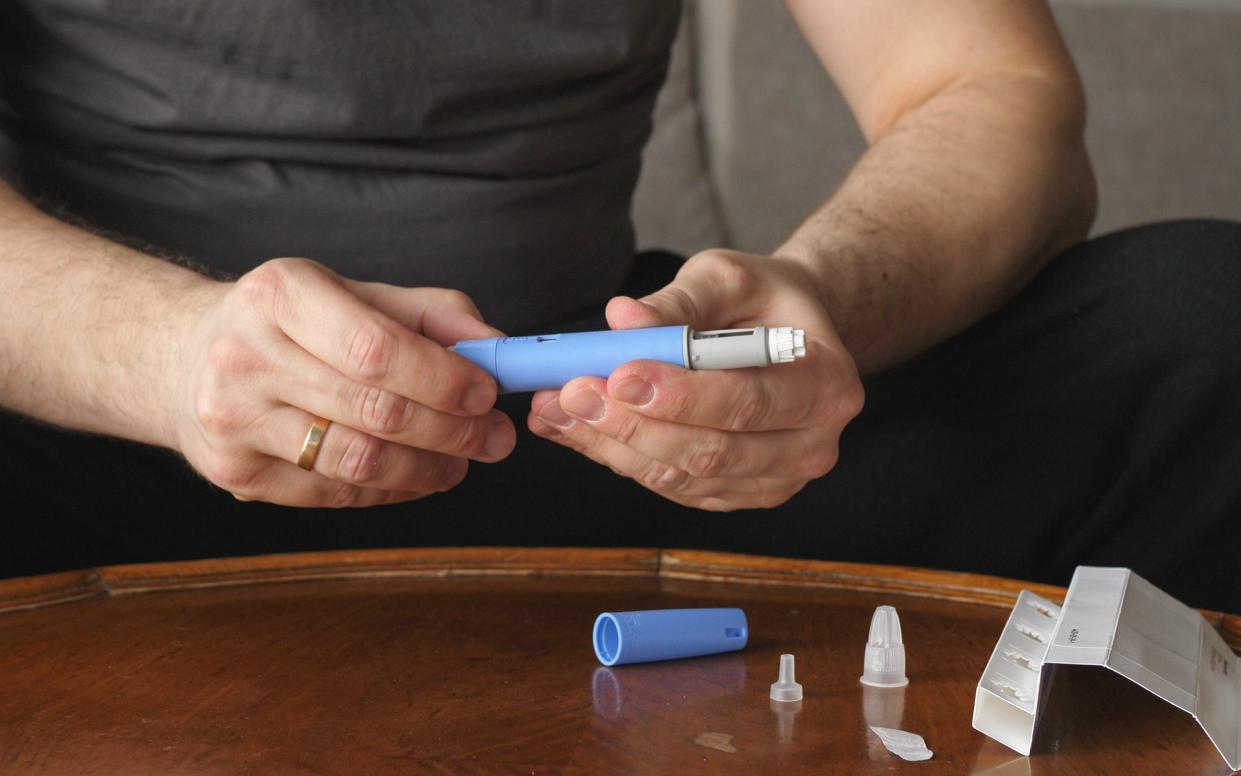Ozempic-like drug slows Parkinson’s symptoms, study suggests

An Ozempic-like drug slows down Parkinson’s symptoms and could protect against disease progression, a study suggests.
Lixisenatide, a drug of the same category as Ozempic and Wegovy, is already authorised for use in the treating of diabetes patients and is given as a daily injection.
Data from a study of 156 people with Parkinson’s found that the 78 people taking the drug every day for a year saw no decline in their physical symptoms.
However, the placebo trial group saw participants deteriorate by three points on a 132-point scale.
The phase two trial was run by scientists at the University Hospitals of Toulouse and Bordeaux and involved 21 different research centres across France.
The drug shows promise as a potential treatment for Parkinson’s, a condition that has no cure but can be managed with medication. However, it did have significant side-effects with almost half (46 per cent) of participants feeling nauseous and one in eight vomiting.
‘Significant step forward’
“For 30 years, we have been trying to understand how to slow the decline associated with Parkinson’s disease,” said professors Wassilios Meissner and Olivier Rascol, the principal investigators of the study.
“In this context, the positive results of the phase two trial, showing less progression of motor symptoms of Parkinson’s disease over a year, constitute a significant step forward in the future management of the disease.
“We look forward to confirming these encouraging results in the future, in order to translate such findings into clinical practice.”
The drug belongs to a group of medicines called glucagon-like peptide 1 receptor agonists (or GLP-1R agonists) that work by mimicking the action of a natural gut hormone that is produced after eating food.
The hormone stimulates insulin release from the pancreas, which helps cells in the body to absorb glucose that is eventually turned into energy. The drugs also create feelings of satiety and are therefore increasingly being used as a weight loss treatment.
There is a known link between Parkinson’s and type 2 diabetes, with research suggesting that people with diabetes have a higher risk of developing Parkinson’s.
People with Parkinson’s who are type 2 diabetic often experience a more rapid progression of their symptoms, research has suggested.
Dr Richard Wyse, director of clinical development at Cure Parkinson’s, said: “I am thrilled to see the extremely positive, ground-breaking clinical outcome of the lixisenatide trial, which could have real meaning for people living with Parkinson’s.”
Masud Husain, professor of neurology, Oxford University, said: “The results of this trial are really encouraging for people with Parkinson’s disease.
“After a year, patients who were on the drug were significantly better off in their movements than those who weren’t on the medication.
“However, the findings do not provide conclusive evidence that the drug has a protective effect on the brain to effectively slow down disease progression.
“We also have to bear in mind the side effects.”
‘Larger clinical trials’
Prof Michele Vendruscolo, co-director of the Centre for Misfolding Diseases at Cambridge University, said: “GLP-1 agonists are widely used to treat type 2 diabetes, and are among the leading repurposed drugs being tested for disease-modifying effects in Parkinson’s disease.
“In addition to prompting longer and larger clinical trials, these results show a more quantitative understanding of the mechanism of action of GLP-1 agonists.”
The findings are published in the New England Journal of Medicine.


